Overview
The Interventional and Advanced Diagnostic Pulmonology Fellowship at Mayo Clinic's campus in Jacksonville, Florida is a one-year fellowship for eligible graduates of pulmonary and pulmonary critical care fellowships.
During this training year, you can expect robust exposure to both malignant and non-malignant diseases involving the airways, lung parenchyma, and pleural space. The program includes rotations in thoracic surgery, laryngology surgery, and lung transplant medicine, among others.
Accreditation, certification, program history
Accreditation
This program fulfills the training requirements as defined by the American Association of Bronchology and Interventional Pulmonology and is accredited by the Accreditation Council for Graduate Medical Education (ACGME).
Certification
After successful completion of this program, fellows will be eligible to take the Interventional Pulmonology Certification Exam offered by the American Association for Bronchology and Interventional Pulmonology.
Program history
The Interventional and Advanced Diagnostic Pulmonology Fellowship at Mayo Clinic in Jacksonville, Florida will begin in July 2025. We anticipate one fellow will complete this program annually.
Application process
Positions
There is one position available on a competitive basis each year in the Interventional and Advanced Diagnostic Pulmonology Fellowship at Mayo Clinic in Jacksonville, Florida. Fellowship appointments are made through the National Residency Matching Program (NRMP). Our NRMP ID number is 1032138S0.
Qualifications
Applicants must be graduates of an Accreditation Council for Graduate Medical Education (ACGME) accredited Pulmonary or Pulmonary and Critical Care Fellowship program.
Also see general admissions requirements.
How to apply
Applications are accepted beginning July 1. The deadline for submitting applications is Aug. 31 (approximately 10 months before the fellowship start date). The academic year begins in July.
- To apply to the program, submit your application through the online Interventional Pulmonary Fellowship Application System (IPFAS) located on the Association of Interventional Pulmonology Program Directors (AIPPD) website.
The following items are necessary to complete your application:
-
- An up-to-date curriculum vitae.
- An up-to-date facial photograph.
- A summarized, HIPAA-compliant procedure log indicating the type and number of procedures performed. A spreadsheet listing every individual procedure is NOT acceptable.
- USMLE 1, 2, & 3 score reports.
- Three letters of recommendation from physicians that know you well, one of which must be from your most recent fellowship program director.
- A letter of intent.
Applicants selected for further consideration will be invited to interview with the program director and designated faculty members. Interviews typically take place from mid-August through late October. Please note: All interview invitations—or notifications that an interview will not be extended—will be communicated via email.
Curriculum
The Interventional Pulmonology Fellowship provides intense pulmonary procedural training with the goal of developing future leaders in the field.
The fellowship consists of 12 months of continuous training. Eleven of these months are spent in interventional pulmonology with time divided between the:
- Complex airway procedural
- Diagnostic bronchoscopy and complex pleural procedures
- Inpatient interventional pulmonology/pleural disease consult service
- Outpatient interventional pulmonology/pleural diseases clinic
At any one time with four procedural services functioning simultaneously, there may be several cases presented at once. You will be expected to maintain awareness of which procedures are occurring at any one time and choose to participate in those procedures most beneficial to the fellow.
You will also operate an outpatient clinic daily that is populated with patients from the interventional and pleural services. Access to this clinic is managed internally by the interventional pulmonary staff to ensure a clinic experience that is focused on interventional pulmonology disease states.
Aside from direct patient care, a human cadaver lab and a state-of-the-art medical simulation center are utilized during this fellowship to augment the procedural experience and ensure optimal hands-on training while ensuring patient safety.
One morning per quarter is devoted to faculty-mentored cadaver work with the intent to expose you to basic skills as well as enhanced exposure to new and advanced techniques in preparation for patient contact. A live animal lab is also available and employed to perform research studies, as well as to expose you to hemorrhage control techniques and to gain a better appreciation for the effect of various instruments on live tissue.
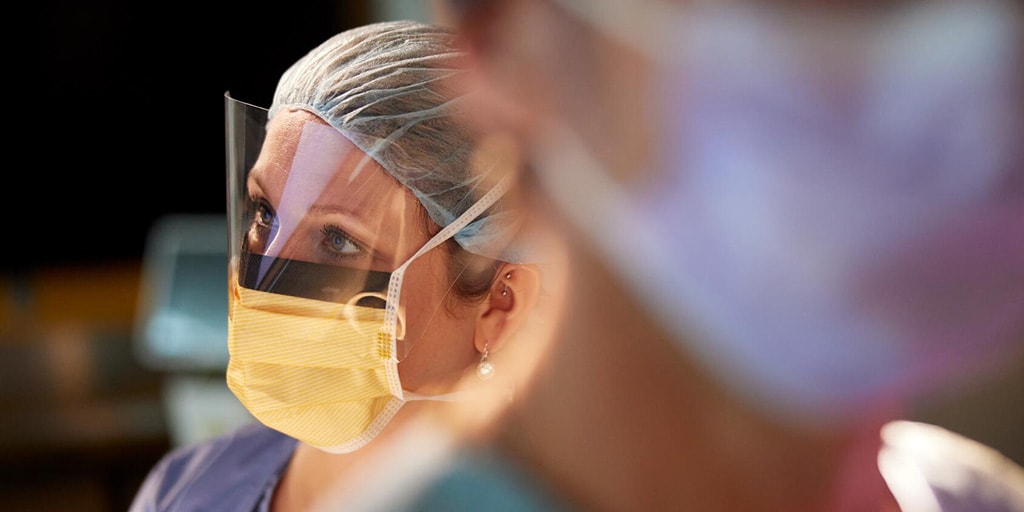
Clinical training
This is a high-volume procedural fellowship. The procedural volumes well exceed all requirements for accreditation. Although procedural volumes vary slightly from year to year, it is reasonable to expect the following:
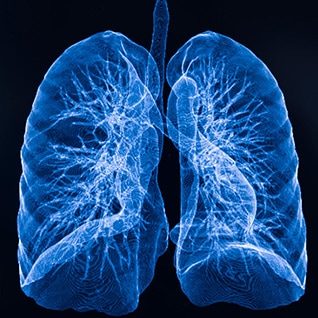 Rigid bronchoscopy cases: 150-200
Rigid bronchoscopy cases: 150-200- Bronchoscopy cases with cryo/ablative techniques: 150-200 cases
- Pleuroscopy/Medical thoracoscopy: 25 cases
- Percutaneous tracheostomy: 20-30 cases
- Pleural catheter placement: 90-110 cases
- Robotic Assisted Bronchoscopy: 300-450 cases
- Image-guided chest tube placement: 50-100 cases
- Airway stenting: 50-80 cases
In addition, you can expect to have robust exposure to and gain expertise in the use of laser, argon plasma coagulation, cryotherapy (to include cryobiopsy), electrocautery, balloon and rigid dilation and endobronchial valve placement among other procedures.
The procedural group also performs in excess of 2,500 diagnostic and therapeutic flexible bronchoscopies, 600-800 endobronchial ultrasound-directed procedures, and multiple thoracenteses (to include thoracenteses performed with the use of pleural manometry) yearly.
All procedures and patient encounters will be supervised by the responsible consultant regardless of the simplicity of the procedure and experience of the fellow. Early in the training year supervision may include the immediate presence of the consultant, however as the training year progresses supervision may become less rigid thus allowing you to progress toward more independent practice.
Call frequency, moonlighting
Call frequency
You will cover the inpatient interventional pulmonology/pleural disease service along with overnight call from home one weekday per week when the general pulmonary fellow takes their day off. You will have responsibility for the disposition of outpatients after interventional procedures and are expected to round on all inpatients after interventional procedures. Occasionally, this may require brief rounds on the weekends. If you wish to be involved in weekend and night coverage for interventional procedures, that is possible on request, although weekend and night interventions are uncommon.
All duty responsibilities are maintained within the guidelines of the Accreditation Council for Graduate Medical Education (ACGME).
Moonlighting
Moonlighting is not allowed as it does not contribute to interventional pulmonary experience. The Interventional and Advanced Diagnostic Pulmonology Fellowship is a fully funded fellowship designed for one year of focused training and research.
Didactic training
The Interventional and Advanced Diagnostic Pulmonology Fellowship didactics consist of forty weekly sessions aimed at setting the essential medical knowledge of a well-rounded interventional pulmonologist and evolving into a more complex critical analysis of challenging cases that promote progress on a trajectory to autonomous practice in the IP subspecialty. Overall, the program didactics consists of nine blocks. Each block contains four to five sessions of 45 minutes each. Learn more about didactic training and the specific goals and objectives of each block. Please note that the following educational curriculum is subject to change
Didactic training - Block, goals and objectives of educational assignment
| Block | Goals and objectives of educational assignment |
|---|---|
| Interventional Pulmonology Basics 1 | Understand the basic anatomy and physiology of the Pulmonary and Pleural Space relevant to interventional pulmonology |
| Interventional Pulmonology Basics 2 | Review the basic tools available to perform interventional pulmonology (IP) procedure and their impact in anatomy and physiology |
| Interventional Pulmonology Procedures 1 | Discuss the technique, indication and contraindications of specific IP procedures |
| Interventional Pulmonology Procedures 2 | Discuss the technique, indication and contraindications of specific IP procedures |
| Interventional Pulmonology Procedures 3 | Discuss the technique, indication and contraindications of specific IP procedures |
| &Interventional Pulmonology Pathology 1 | Apply the anatomic and physiology knowledge with specific procedural techniques knowledge in the management of pathological scenarios |
| Interventional Pulmonology Pathology 2 | Apply the anatomic and physiology knowledge with specific procedural techniques knowledge in the management of pathological scenarios |
| Interventional Pulmonology Supplemental | Appraise the previously learned goals and defend perspective into different academic societies and conferences |
| Interventional Pulmonology Board Review Preparation | Assemble integrate experiences to successfully prepare for IP board examination |
Didactic training - Weeks, titles
Interventional Pulmonology Basics 1 (Block 1)
| Week | Title |
|---|---|
| 1 | Introduction to Interventional Pulmonology |
| 2 | Flexible and Rigid Bronchoscopy |
| 3 | Airway Anatomy and Endobronchial Ultrasound Landmarks |
| 4 | Pleural Anatomy and Physiology |
Interventional Pulmonology Basics 2 (Block 2)
| Week | Title |
|---|---|
| 5 | Airway Conference |
| 6 | Mechanical Ventilation in Interventional Pulmonology |
| 7 | Pleural Drainages and Atriums |
| 8 | Pleural Drainages and Atriums |
| 9 | EBUS and EUS |
Interventional Pulmonology Procedures 1 (Block 3)
| Week | Title |
|---|---|
| 10 | Pleural Conference |
| 11 | Airway Stenting |
| 12 | Cryo biopsy in Interventional Pulmonology |
| 13 | Cryotherapy |
Interventional Pulmonology Procedures 2 (Block 4)
| Week | Title |
|---|---|
| 14 | Thermo ablative Techniques |
| 15 | M&M |
| 16 | Medical Thoracoscopy |
| 17 | Bronchoscopic Lung Volume Reduction |
| 18 | Robotic Assisted Bronchoscopy |
Interventional Pulmonology Procedures 3 (Block 5)
| Week | Title |
|---|---|
| 19 | Photo Dynamic Therapy |
| 20 | Tracheostomy and Peg tube Placement |
| 21 | T tubes |
| 22 | Advanced Imaging Modalities |
Interventional Pulmonology Pathology 1 (Block 6)
| Week | Title |
|---|---|
| 23 | Massive Hemoptysis |
| 24 | Pneumothorax and Persistent Air leak Management |
| 25 | Expiratory Central Airway Collapse |
| 26 | Central Airway Obstruction |
| 27 | Airway Conference |
Interventional Pulmonology Pathology 2 (Block 7)
| Week | Title |
|---|---|
| 28 | Lung Transplant and Interventional Pulmonology |
| 29 | Interventional Pulmonology Board Review |
| 30 | Pneumomediastinum Management |
| 31 | Pleural Conference |
Interventional Pulmonology Supplemental (Block 8)
| Week | Title |
|---|---|
| 32 | Billing in Interventional Pulmonology |
| 33 | ATS |
| 34 | ERS |
| 35 | M&M |
| 36 | AABIP |
| 37 | CHEST |
Interventional Pulmonology Board Review Preparation (Block 9)
| Week | Title |
|---|---|
| 38 | Interventional Pulmonology Board Review |
| 39 | Interventional Pulmonology Board Review |
| 40 | Interventional Pulmonology Board Review |
| 39 | Interventional Pulmonology Board Review |
| 40 | Interventional Pulmonology Board Review |
Belonging
At Mayo Clinic, we foster an inclusive working environment and embrace the diversity of all our trainees, faculty, staff, and patients. Our Office of Belonging offers tremendous resources to support our mission of maintaining a welcoming atmosphere for all our employees, including our learners. We strive to provide culturally appropriate care and do our part to reduce healthcare disparities.
/0x0:512x512/prod01/channel_2/media/studio-sites/mccms-reference-guide/512X5121573348_3801872_0024-(1).jpg)
Video: See yourself at Mayo Clinic
5:33
From the program director
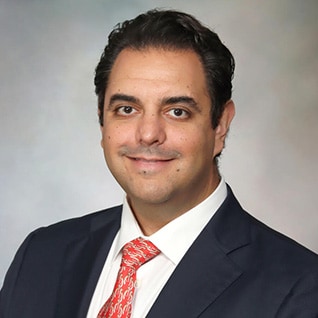 Welcome to the Interventional and Advanced Diagnostic Pulmonology Fellowship at Mayo Clinic in Jacksonville, Florida. We are thrilled to have you consider our program, which offers a comprehensive and immersive one-year training experience for graduates of pulmonary and pulmonary critical care fellowships.
Welcome to the Interventional and Advanced Diagnostic Pulmonology Fellowship at Mayo Clinic in Jacksonville, Florida. We are thrilled to have you consider our program, which offers a comprehensive and immersive one-year training experience for graduates of pulmonary and pulmonary critical care fellowships.
Our fellowship is designed to provide robust exposure to both malignant and non-malignant diseases affecting the airways, lung parenchyma, and pleural space. You will benefit from three key rotations in thoracic surgery, laryngology surgery, and lung transplant medicine. These rotations ensure a well-rounded clinical experience, preparing our fellows to excel in the diverse field of interventional pulmonology.
Accredited by the ACGME, our program not only meets but exceeds all training requirements, ensuring that our graduates are well-prepared to sit for the Interventional Pulmonology Certification Exam.
Throughout the 12-month fellowship, you will gain hands-on experience in a variety of settings, including complex airway procedural suites, diagnostic bronchoscopy and pleural procedure suites, inpatient consult services, and outpatient clinics. Our high-volume procedural training covers a wide array of techniques and interventions, from rigid bronchoscopy and cryotherapy to robotic-assisted bronchoscopy and airway stenting.
Our faculty comprises of leading experts in the field, including board-certified interventional pulmonologists, advanced endoscopists, pleural disease specialists, and thoracic surgeons. You will benefit from the rich history and collaborative environment of Mayo Clinic, working closely with esteemed professionals and gaining exposure to innovative practices and research.
We invite you to join us in this exciting and challenging journey towards becoming a leader in interventional pulmonology. Your training here will equip you with the skills, knowledge, and confidence to excel in this dynamic field and provide exceptional care to patients.
Warm regards,
Bryan Husta, M.D., FCCP, DAABIP
Interventional and Advanced Diagnostic Pulmonology Fellowship Program Director
Department and faculty
The Department of Medicine at Mayo Clinic is a highly integrated, collaborative department of physicians. Virtually all subspecialties of medicine are represented among our department's faculty members, many of whom are international leaders in their respective fields.
The Division of Pulmonary and Critical Care Medicine is regularly recognized as one of the premier divisions of its kind in the United States and is responsible for many innovations and advancements in the care of patients with respiratory diseases.
Meet the faculty
The current pulmonary procedural group consists of four board-certified interventional pulmonologists, two additional advanced endoscopists, three additional pleural disease experts, and one dual-appointment thoracic surgeon.
Mayo Clinic has a long history of interventional pulmonary practice dating back to the 1950s, and current faculty members include past-presidents and board members of the American Association for Bronchology and Interventional Pulmonology, committee chairs and executive committee members of the World Association for Bronchology and Interventional Pulmonology, and committee chairs and committee members of the American College of Chest Physicians.
The Mayo pulmonary procedural group also benefits from a very strong collegial relationship with the Mayo divisions of thoracic surgery and interventional radiology. You can expect to work very closely with members of these groups during their training.
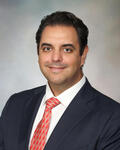 |
Bryan Husta, M.D., FCCP, DAABIPProgram Director Dr. Bryan Husta is a highly regarded Interventional Pulmonologist at Mayo Clinic in Jacksonville, Florida. He specializes in advanced bronchoscopy techniques, including robotic-assisted bronchoscopy and transbronchial cryobiopsy. Dr. Husta trained at Georgetown University Hospital for Pulmonary and Critical Care Medicine and completed his Interventional Pulmonology Fellowship training at the Harvard Combined Beth Israel Deaconess/Massachusetts General Hospital program. Upon graduation he founded the Interventional Pulmonology program at Lenox Hill Hospital and was later recruited to Memorial Sloan Kettering Cancer Center (MSKCC). He previously served as the Associate Program Director at MSKCC for the Interventional Pulmonology Fellowship Program, Director of Endobronchial Therapies and Director of Outpatient Interventional Pulmonary Services at MSKCC. A dedicated educator and researcher, he has led national courses in Interventional Pulmonology and pioneered innovations in minimally invasive pulmonary procedures. |
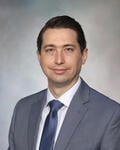 |
David Abia Trujillo, M.D., M.B.Dr. Abia Trujillo is a renowned interventional pulmonologist and critical care specialist at Mayo Clinic in Jacksonville, Florida. He completed his medical training in Mexico, followed by specialized training at Morristown Medical Center, Mayo Clinic, and Harvard Medical School. Dr. Abia-Trujillo focuses on advanced COPD, central airway obstruction, and pleural disease, employing various interventional techniques like bronchial thermoplasty and lung biopsies. His accolades include the 2022 Mayo Clinic Experience Top Performer Award and the 2022 Catalyst Award. |
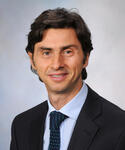 |
Sebastian Fernandez-Bussy, M.D.Dr. Sebastian Fernandez-Bussy is an esteemed interventional pulmonologist at Mayo Clinic in Jacksonville, Florida. He specializes in minimally invasive thoracic procedures, utilizing advanced technologies like robotics. Dr. Sebastian's expertise includes treating severe lung conditions such as COPD, asthma, lung cancer, and tracheobronchomalacia. He holds an M.D. from Salvador University in Argentina, with further training at the University of Texas-Houston, University of Florida, and University of Heidelberg. Dr. Fernandez-Bussy leads Mayo Clinic's Procedural Innovation Team, has numerous awards, and is a visiting professor at Heidelberg University. |
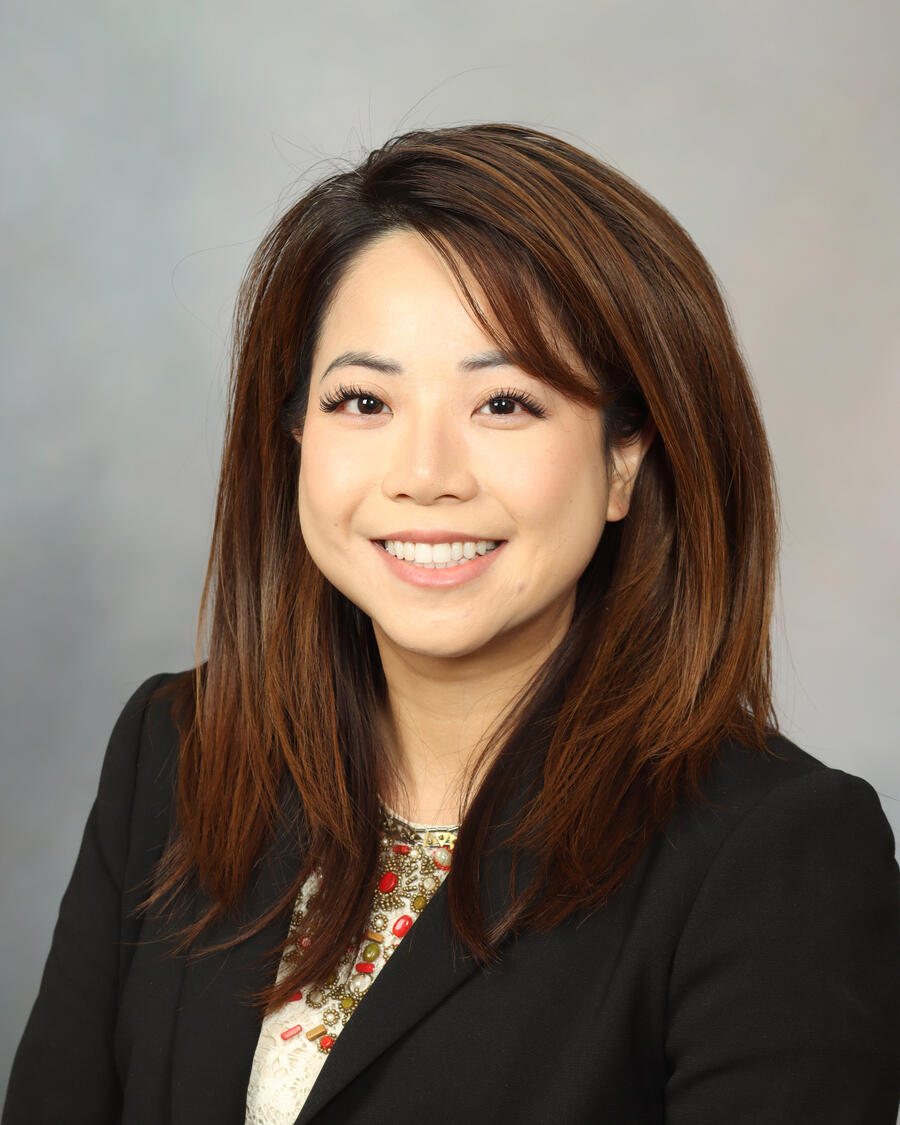 |
Linh Vu, M.D.Dr. Linh H. Vu is an accomplished interventional pulmonologist currently practicing at Mayo Clinic in Jacksonville, Florida. With a strong educational foundation, Dr. Vu earned her medical degree from Yale School of Medicine and completed her Internal Medicine residency, followed by a Pulmonary and Critical Care fellowship, at Mayo Clinic in Rochester, Minnesota. At Mayo Clinic, Dr. Vu specializes in advanced diagnostic and therapeutic procedures, including robotic bronchoscopy. Her work is part of Mayo Clinic's commitment to integrating cutting-edge technology with personalized patient care. |
Wellness initiatives
As a trainee, your physical and mental health are priorities to Mayo Clinic and the department. Trainees have access to several resources to promote well-being, as well as time off clinical duties to attend appointments.
- Fitness centers
- Groups on campus
- Well-being
Fitness centers
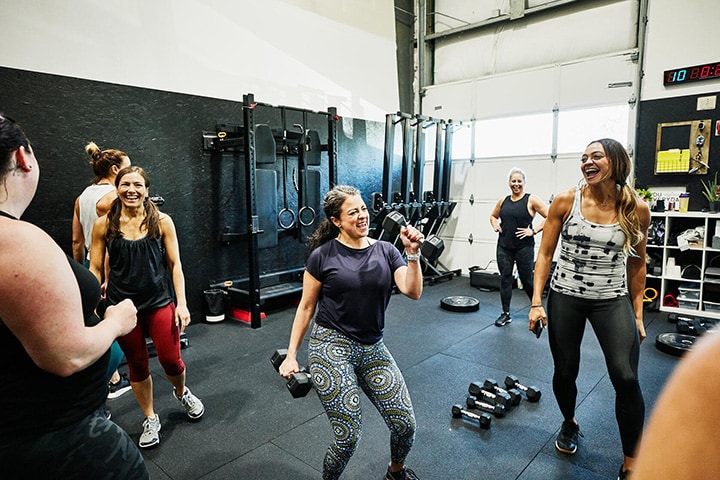 Mayo Clinic residents or fellows can experience 24/7 free access to the Bill Hewitt Employee Wellness Center — opened in the summer of 2024 and spans 6,700 square feet with modern cardio machines, weight machines, free weights, a studio for live classes, and includes showers and locker rooms for convenience.
Mayo Clinic residents or fellows can experience 24/7 free access to the Bill Hewitt Employee Wellness Center — opened in the summer of 2024 and spans 6,700 square feet with modern cardio machines, weight machines, free weights, a studio for live classes, and includes showers and locker rooms for convenience.
Additionally, residents or fellows at our three campuses get discounted membership fees to area gyms. In Jacksonville, Florida, residents and fellows can obtain an exclusive discount with the YMCA (several locations).
Groups on campus
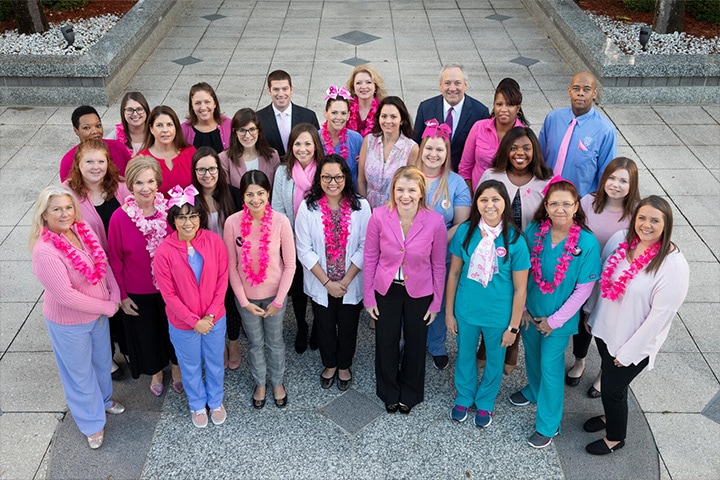
Opportunities to join a variety of groups on campus provide regular social activities and can help enhance your training while connecting with a broad group of peers.
Trainees will have the opportunity to join a Mayo Employee Resource Group (MERG) at any time during their training program. Mayo Employee Resource Groups (MERGs) are employee-led affinity groups to promote belonging, increase cultural awareness, and foster an environment of respect and inclusivity. Any Mayo Clinic employee can join a group of interest and choose their level of involvement
Well-being
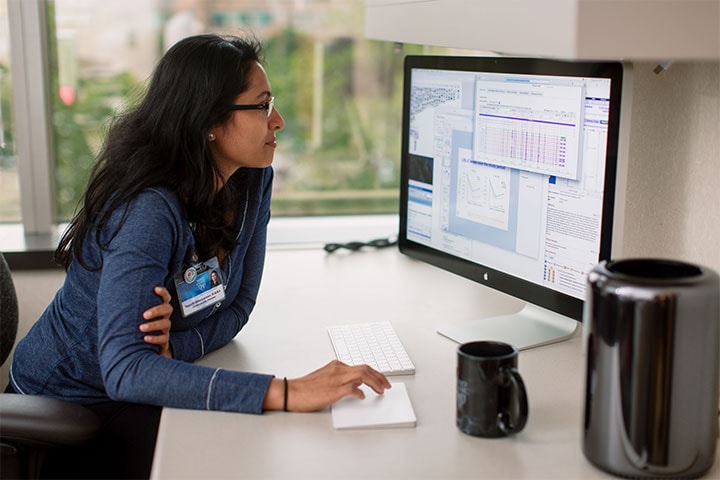 The Student Services office provides resources to promote academic, emotional, social, cognitive, financial, and physical well-being. Career and academic services include academic advising, peer tutoring, and accommodations for learners with disabilities or health conditions. Mental health services, counseling, interview practice, and a variety of enrichment sessions on topics like budgeting, resiliency, and stress and burn-out are also available through the Student Services office.
The Student Services office provides resources to promote academic, emotional, social, cognitive, financial, and physical well-being. Career and academic services include academic advising, peer tutoring, and accommodations for learners with disabilities or health conditions. Mental health services, counseling, interview practice, and a variety of enrichment sessions on topics like budgeting, resiliency, and stress and burn-out are also available through the Student Services office.
More from Mayo Clinic School of Graduate Medical Education
/0x0:512x512/prod01/channel_2/media/mccms/content-assets/academics/residencies-and-fellowships/3319834_0363-512X512.jpg)
Choosing Mayo Clinic
/0x0:512x512/prod01/channel_2/media/mccms/content-assets/shared-documents/campus-FL-Jax_Davis_Bldg_Mar2003_R-pic-tile.jpg)
Jacksonville, FL
Campus and community/0x0:512x512/prod01/channel_2/media/studio-sites/mccms-reference-guide/512X5121676671_3824027_0010_C.jpg)
Stipend and benefits
Mayo Fellows Association (MFA)
The Mayo Fellows Association (MFA) offers a peer and social support network for residents and fellows and their families with social events, athletics, and advocacy. The MFA also holds an annual resident and fellow appreciation event open to all trainees with complimentary massages, stress-reducing activities, and social support.
/282x0:1407x1125/prod01/channel_2/media/mccms/content-assets/academics/residencies-and-fellowships/interventional-and-advanced-diag-pulm-fell-fl/WF4305813_0085.jpg)
/0x0:440x220/prod01/channel_2/media/mccms/content-assets/campus-amp-community/florida/440X220_sidebar-mayo-clinic-jacksonville-fl-shu244045420.jpg)